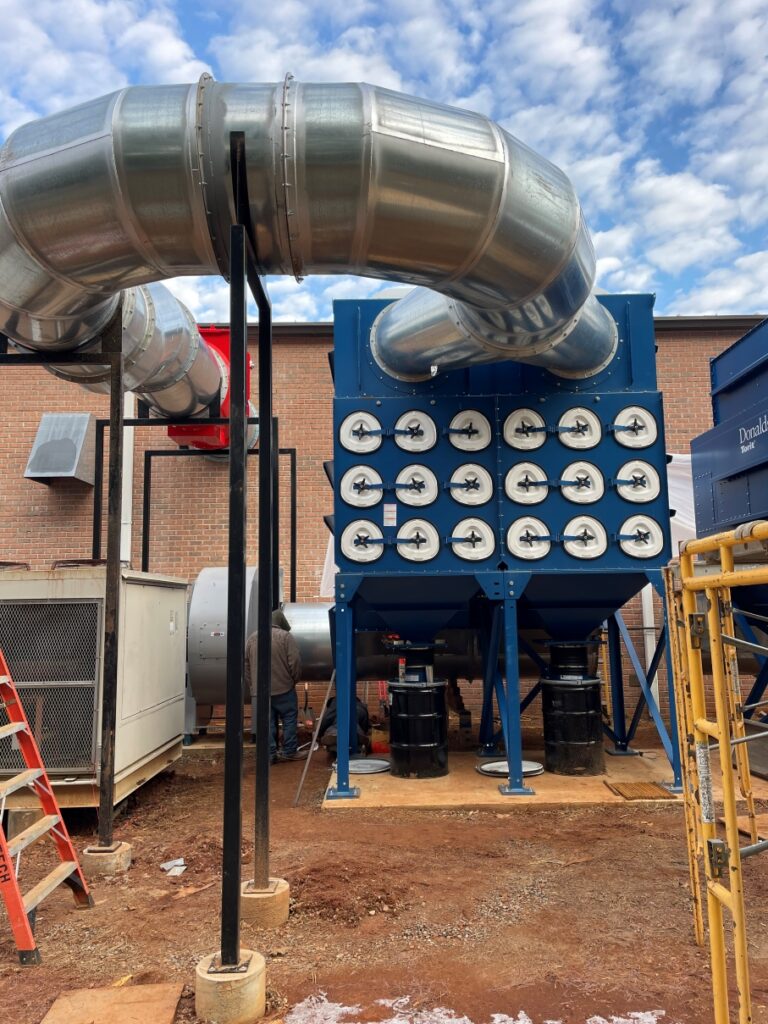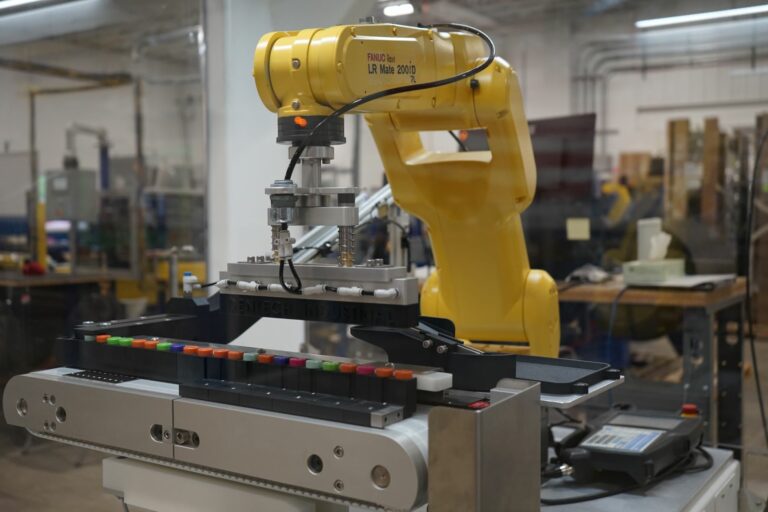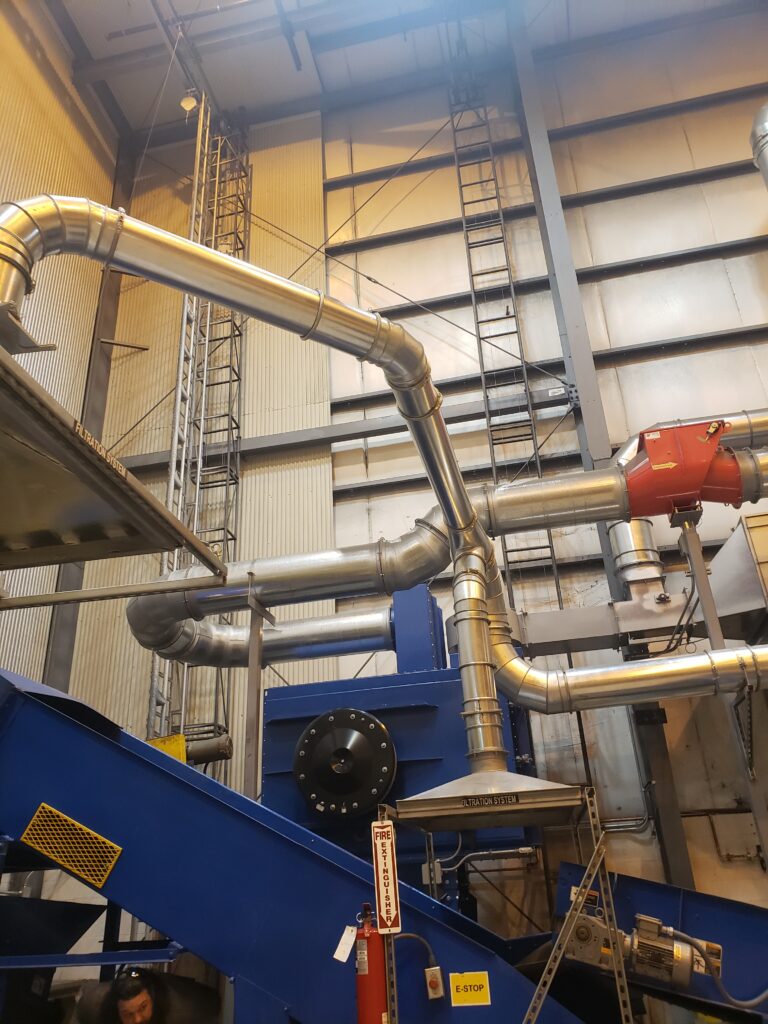DenTech Industrial started as a machine shop and began selling dust collection equipment in 1985.
Since then, we’ve added design, mechanical and electrical installation, fabrication, electrical control panels, automation, and robotics. Today DenTech is a system integrator that provides custom process solutions for manufacturing and industrial customers.
But what does a system integrator do? Here’s an overview of how system integrators work with customers.
How system integrators work with customers
1. Understand the customer’s challenge
First and foremost, a system integrator gathers information and asks questions to understand what the customer needs. At the beginning of a new project, a system integrator meets with the customer. They may walk through the facility together to review equipment and processes.
2. Develop a custom solution
After understanding what the customer wants to accomplish, the system integrator designs a solution that takes into consideration the customer’s existing equipment and processes. System integrators also think about the future of the customer’s business for potential upgrades or improvements in the facility.
3. Build out the project
After the customer approves the solution and scope of work, a project manager develops a schedule. Depending on the system integrator, they may have in-house capabilities or work with sub-contractors to complete the work.
4. Install the solution
System integrators do more than buy and make parts. They understand how components and equipment fit together in complete systems. They install solutions seamlessly into the customer’s facility.
5. Train operators on new equipment
Since system integrators understand the process and equipment, they are well-positioned to train customers on how to use equipment safely and correctly. After start-up and commissioning, system integrators can train end-user operators on how to use the equipment, what safety measures are in place, and how to maintain the machine.
6. Maintain systems and equipment
In some cases, system integrators offer on-going support and maintenance for equipment. They help troubleshoot issues that come up and give guidance on how to improve processes in the future.
Benefits of working with a system integrator
When it comes to completing a project in a manufacturing facility, customers have a few options.
1. If the customer has the relevant skill sets and resources in-house, they can complete the work with their own personnel. In many cases, though, customers need outside support to improve their processes and install solutions.
2. The customer can work with multiple vendors for different functions to complete the project.
3. The customer can work with one system integrator that has capabilities to complete the full scope of work.
Working with a system integrator offers several benefits.
One purchase order
When a customer works with one system integrator to complete a project, the customer has only one purchase order to cover the design, components, build-out, and installation. The customer doesn’t have to track separate expenses with several vendors. Having one purchase order cuts down on the paperwork associated with the project.
Single point of responsibility
Working with one system integrator means the system integrator is responsible for every part of the project. This allows the system integrator to have more efficient processes and improved productivity. The customer saves time by coordinating with one project manager and streamlining communication, instead of talking with several project managers at various companies. Also, if any issues come up during the project, the system integrator will take care of them. No time is wasted trying to figure out whose responsibility it is to correct issues.
A fresh perspective
System integrators offer a fresh perspective on a customer’s processes. Since the system integrator doesn’t work in the customer’s facility day in and day out, they may notice improvements that the customer did not consider. Also, with system integrators working across a variety of applications, they can offer solutions inspired by their vast experience.
Among system integrators, DenTech stands out by having a broad range of in-house experts and capabilities, including:
- CAD design and 3D modeling
- Machining, welding, and fabrication
- Electrical control panels
- Dust collection system installation and service
- Mechanical and electrical installation
- Millwright and rigging
- Automation and robotics
- Machine safety
- Machine start-up, commissioning, and training
Working with system integrators offers customers an experience like one-stop shopping: one partner to manage a project from start to finish, with efficient workflows, streamlined communication, and a fresh perspective. The result is a turnkey solution that improves a process in the facility. After the first project is completed, the customer and system integrator may develop a relationship and build trust for future work.
Contact DenTech for more information on how we can support you on your next project.




